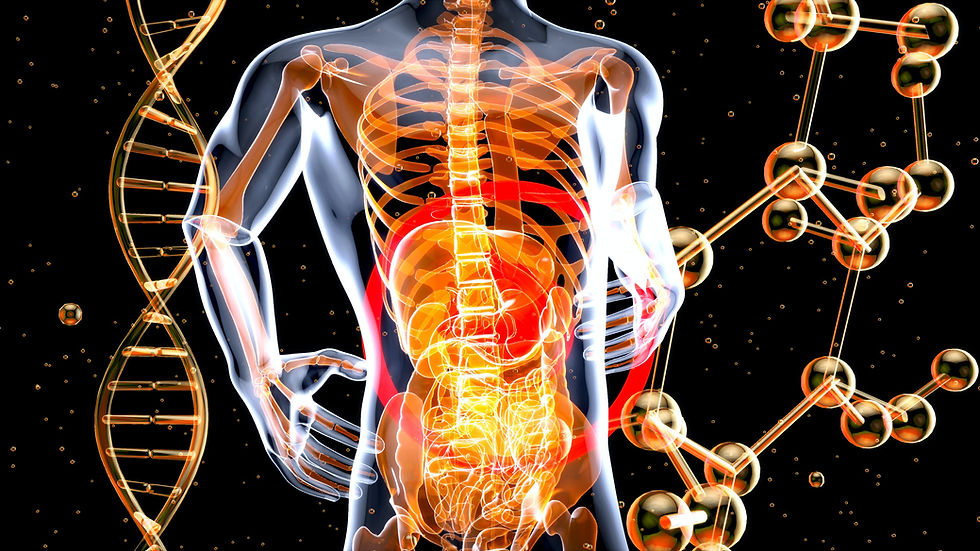Dietary Supplements : When and what to take and not to take for wellbeing
- Peter Marinov
- Aug 6, 2023
- 3 min read
Updated: Aug 13, 2023
In today's media, there is a plethora of advertising instructing us to take this or that supplement in order to feel incredible or scaring us that we are missing one or more substances in our bodies and this can put us at risk of something.
Fortunately, most of the time that is simply not the case. Our bodies are not perfect but they have adapted to be self sufficient in many ways. Supplements are most of the time unrequired, especially if we adhere to a healthy diet, are not ill and pursue mostly healthy habits.
Nevertheless, there are some cases in which supplements can enhance our lives. In this post, I will review the latest scientific evidence on what to take and in which circumstances.
The older population, aged 40–70 years, has recently been shown to benefit from a 10% reduction in cardiovascular disease-related mortality and 5% decrease in cardiovascular-related symptoms, if they supplement their diets with folate, as well as with vitamins B6 and B12 [1]. These supplements are readily available in many pharmacies without the need for a medical prescription.
Probiotics and synbiotic supplementation has been found to have a positive role in reducing cardiovascular inflammation and oxidative stress in pre-diabetics and type-2 diabetics. As a result, they reduce the burden of cardivascular disease [2]. Probiotics are defined as microorganisms able to exert a positive effect on the host. Probiotics efficiently improve the integrity of the intestinal barrier, inhibit the release of pro-inflammatory cytokines. Synbiotics represent a combination of probiotics and prebiotics (as non-digestible food ingredients), acting in unison. Synbiotics are a mixture of prebiotics and probiotics. Prebiotics are plant-based fibres that are used to feed your good gut bacteria, enabling it to grow stronger and healthier over time.

source: https://unsplash.com/@julientromeur
A personal favorite of mine is the Omega-3 fatty acid, Eicosapentaenoic acid or EPA for short. I recently was exposed to its micarulous effects by running out of it for a few months. The result was percieved brain inflammation, sleeplessness and low energy. When i started taking it again, I was able to regain balance in my sleep, concentrate for longer, stabilise my mood and increase my perceived levels of energy during the day. The results were nothing short of miraculous. Withing four days of taking the supplement, I was feeling very differently to before. I want to emphasise that the EPA concentration is the important differentiator and any generic Omega-3 suppplement will not do it. I use the following product, which I trust and recommend.

Vitamins D and K2 are to be consumed as a group and are recommended for those living in Northern Europe or Northern States of the US and above. In these climates, sun exposure is limited and over 30% of the population is vitamin D deficient. This staggering number means that approximately 1 in 3 people is walking around in northern Europe/US/Canada feeling tired, with a low mood and lacking energy, without knowing why. Vitamin K2 prevents the accumulation of plaques in the blood vessels which can result from high levels of vitamin D in the blood. A good, vegetarian and high quality product I use is the below.

Calcium is also recommended for the elderly and people who are vegan or lactose intolerant, like me. Calcium supplements keep the bones healthy and has been shown to reduce rates of colon cancer and even obesity. It is involved in an impressively long list of bodily functions, including:
Help form bones and teeth.
Help maintain body strength.
Assist in the movement of muscles.
Assist with nerve messaging between the brain and body systems.
Help blood flow as vessels relax and constrict.
Release hormones and enzymes that support body functions.
I have not noticed any unwanted side effects with the calcium supplement linked below, at 2 tablets per day.

The above are the most common types of daily supplements that can greatly enhance life quality. I also recommend electrolytes for days of intense and prolonged physical exercise. These help to replenish Sodium, Potassium, Magnesium and other levels of vitamins in the body and keep us optimally hydrated. Needless to say, electrolytes allow us to sustain peak physical performance for longer. Specific medical conditions may require a different mix of supplements, please consult your GP if you have a special condition.
References
[1] B. Zhang, H. Dong, Y. Xu, D. Xu, H. Sun, and L. Han, ‘Associations of dietary folate, vitamin B6 and B12 intake with cardiovascular outcomes in 115664 participants: a large UK population-based cohort’, Eur J Clin Nutr, vol. 77, no. 3, Art. no. 3, Mar. 2023, doi: 10.1038/s41430-022-01206-2.
[2] K. Naseri et al., ‘The effects of probiotic and synbiotic supplementation on inflammation, oxidative stress, and circulating adiponectin and leptin concentration in subjects with prediabetes and type 2 diabetes mellitus: a GRADE-assessed systematic review, meta-analysis, and meta-regression of randomized clinical trials’, Eur J Nutr, vol. 62, no. 2, pp. 543–561, Mar. 2023, doi: 10.1007/s00394-022-03012-9.

コメント